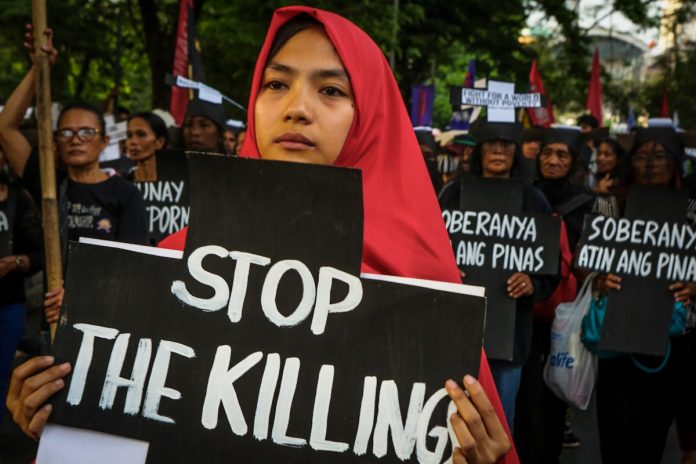Following one theologian (Ellacuria), I think the question is not so much “Why did Jesus die?” I think the question is “Why was Jesus killed?”
Nasanay na tayong magtanong kung “Bakit namatay si Hesus?” at ang ating nakasanayang sagot ay “Upang tubusin tayo sa ating mga kasalanan.” Ano kaya kung ating itatanong naman: “Bakit nila pinatay si Hesus?” Ano kaya ang kahulugan ng sagot nito para sa ating buhay Kristiyano.
To the ruling elite of Jerusalem, Jesus was a subversive prophet. His proclamation that a new kingdom is imminent—the reign of God—was quite disturbing. In Jesus’ time, basileia (kingdom) was a word used only to describe the Roman Empire. There was no other basileia, only Caesar’s.
But Jesus appropriated it and used it to proclaim God’s reign among the poor. In this new kingdom, the victims, the outcast, the sick and the poor find themselves in the center. His words but also his life and works were a scathing critique to the government that excluded them.
But what he did in the temple during this last week nailed his fate. He overturned the tables of moneychangers and offerings for sale. It upset the Roman authorities as well: he disturbed the stability of the temple that was the symbol of Pax Romana. He was condemned as a criminal and, in a sham trial with stage-managed witnesses, was judged to be crucified.
I am afraid we have domesticated Jesus’ death, romanticized it a little bit, made it palatable to our cozy tastes, packaged safe for our consumption but totally distant from the real events they are supposed to commemorate. We are in danger of forgetting that his was a violent death, the death of a dangerous subversive. And there was nothing “pious” about it!
A theologian once wrote: “Jesus did not enjoy a peaceful old age. He died violently in the summer of his life. He was not defeated by illness. He wasn’t an accident victim. He was executed outside Jerusalem, beside an old rock quarry, by soldiers under the orders of Pilate, the highest authority of the Roman Empire in Judea. It was probably the 7th of April, in 30 A.D. The prefect had sentenced him to death as the instigator of an insurrection against the Empire. Thus his passionate life as a prophet of God’s reign ended on a cross-shaped gallows.” (Pagola, 2011)
I find it necessary to remind us of this context lest we forget that the events we celebrate on Holy Week were genuinely prophetic and deeply political.
How can millions of Catholics piously venerate the cross on Good Friday while at the same time cheering and have voted for the perpetrators of extrajudicial killing of poor drug addicts, human rights advocates, lumad who were only protecting their lands?
We have cheered for those who plundered this country from Martial Law and the years that follow. We cheered for those who were complicit with these killers and elected them to powerful positions in Senate and Congress. We set free those who plundered our health system during the pandemic to the death of thousands among us.
Tawagin nyo man akong hindi naka-move on. Pero hayaan ninyong sasabihin ko ito. Hindi na tayo natoto. We have always applauded for Barabbas, the real criminals, and condemning the innocent Jesus. Again.
Alam nyo ba ang nararamdaman ng mga batang naulila ng kanilang mga amang walang pasubali? Alam nyo ba ang hirap ng mga iniwang balo? Hindi nyo pa rin ba maramdaman ang gutom sa mula sa pangungurakot na ito? Parang nasanay at naging manhid na tayo. “Normal” na nga ba ang buhay na ganito? Sana huwag naman.
The crucifixion of the innocent continues. I do not mean in Bulacan and Pampanga. I mean in the Filipino. We are what Jon Sobrino calls the “crucified peoples.” And many of us are also complicit with our own crucifixion. We nailed innocent peoples to the cross. And we cheered for those who killed them!
Mea culpa. Mea maxima culpa!
Father Daniel Franklin Pilario, C.M., is a theologian, professor, and pastor of an urban poor community in the outskirts of the Philippine capital. He is also Vincentian Chair for Social Justice at St. John’s University in New York. The opinions and views expressed in this article are those of the authors. They do not purport to reflect the opinions or views of LiCAS News or its publishers.









